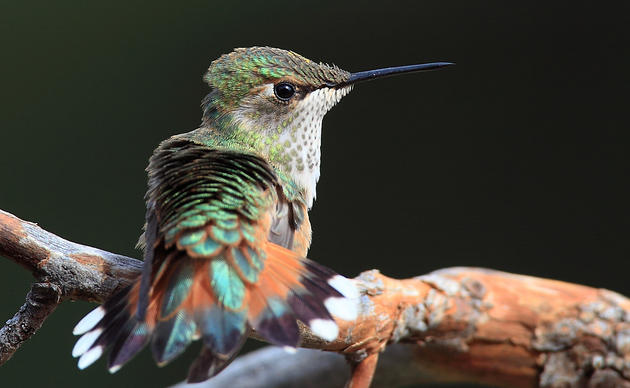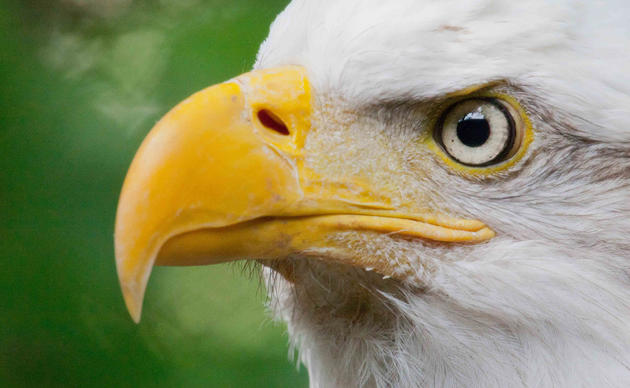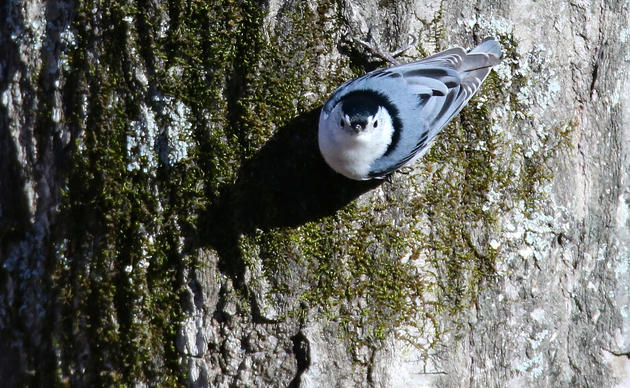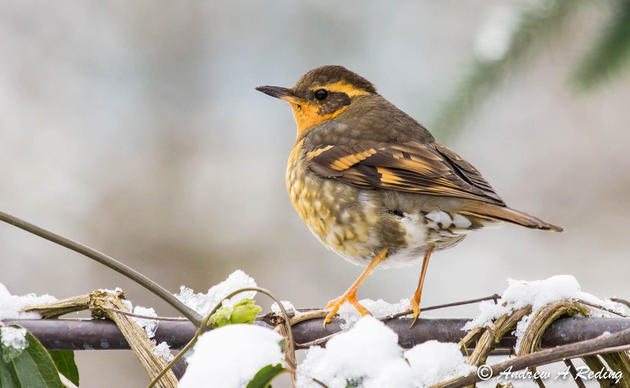News, Tools, and Resources
2014 NATIONAL CLIMATE ASSESSMENT
Changes in the timing of streamflow reduce water supplies for competing demands. Sea level rise, erosion, inundation, risks to infrastructure, and increasing ocean acidity post major threats. Increasing wildfire, insect outbreaks, and tree diseases are causing widespread tree die-off. Explore how climate change is affecting the Northwest.
Fact Sheet: What Climate Change Means for Washington and the Northwest
SPEAKERS
Climate Voices: Science Speakers Network
Climate Voices, Science Speakers Network brings scientists and their fellow citizens together in discussions of climate science and local impacts of climate change. The purpose of the network is to share scientists' expertise and engage citizens in meaningful, ongoing dialogue about climate change effects on local communities, regions, and the country. Speakers will meet with groups of citizens, no matter the size, who would like to understand the science of our climate and engage in discussion about the effects and possible means of adapting to potential changes, no matter the cause. Find a speaker near you.
VIEW
Climate Opinion Maps by Yale - Find out the % of adults in your region that think global warming is happening (2014)
How much fossil fuel has been used in your lifetime? - Interactive tool to show how much fossil fuel the world is extracting right now, and how much it has been in the past.
Carbon emissions: past, present and future – interactive - A timeline of world's top 20 emitters of carbon dioxide since the dawn of industrialisation dominated by UK and US.
1001 Blistering Future Summers - An interactive map predicting summer temperatures in 2100, from Climate Central.
WATCH
Trends in Atmospheric Carbon Dioxide, NOAA
Visualizing the World's C02 Emissions
6 Major Climate Change Myths, Debunked
How Climate Change is Making America's Wildfires More Dangerous
24 Reasons to be Hopeful about Solving the Climate Crisis
A Year in the Life of Earth's CO2
Biocarbon: Mobilizing the power of nature to help restore our climate
READ
Information
- King County Cities, Climate Collaboration
- Confronting Climate Change in Washington, Union of Concerned Scientists
- Climate Change in the Northwest: Implications for our Landscapes, Waters, and Communities (2013), Oregon Climate Change Research Institute
- Global Carbon Pricing Watch 2015, World Bank Group
- IPPC Synthesis Report: Climate Change 2014
- Major series on Climate Change by The Guardian
- [doc:224596|link:Taking Action: 2014 Progress Report], National Fish Wildlife & Plants Climate Adaptation Strategy
News
- [doc:215241|link:What Climate Change Means for Washington], Gretchen Starke, Vancouver Audubon & Kathleen Snyder, Pilchuck Audubon
- How the US electricity system is shifted in recent years — and what that has meant for climate change, Brad Plummer, Vox
- Climate Change is a Clear and Present Danger, Suzanne Goldenberg, The Guardian
- What's in a Name? Global Warming vs. Climate Change - Yale Project on Climate Change Communication
- What really annoys scientists about the state of the climate change debate? - Graham Readfearn, The Guardian
- 6 Major Climate Change Myths, Debunked - Andrew Freedman, Mashable
- Here's what the world would look like if we took global warming seriously - Brad Plumer, Vox
- Washington State Is Gearing Up A System To Cut Its Carbon Emissions, Jeff Spross, Climate Progress
- UW professor: Northwest is 'a potential climate refuge', Wendy Culverwell, PBJ
- Northwest climate scientists say humans causing region to grow warmer, Steve Law, Sustainable Life
- Inslee: Carbon regulation could fund education, flood control, Seattle Times
- Fossil fuels should be phased out by 2100 says IPCC, BBC News
- 9 significant scientific findings too recent to be included in the new IPCC report, Climate Code Red
- 2014 on course to be one of hottest, possibly hottest, on record, World Meterological Organization
- New Prediction Tool for Birds' Future Habitat Ranges, The Wildlife Society
- Are We Missing the Big Picture on Climate Change?, The New York Times
- White House Announces Initiative To Improve Climate Education In The U.S., Climate Progress
- Lifting America's Game in Climate Education, Literacy, and Training, The White House Office of Science and Technology Policy
- Inslee targets polluters with billion-dollar cap-and-trade plan, Seattle Times
- State Senate's collision with science and climate change, Seattle Times
Washington Department of Fish and Wildlife Climate Change Science Publications
- Climate Change Effects on Marine And Coastal Habitats in Washington State
- Climate Change Effects on Shrub-Steppe and Grassland Habitats in Washington State
- Climate Change Effects on Forest, Alpine, and Western Prairie Habitats in Washington State
- Climate Change Effects on Freshwater Aquatic and Riparian Habitats in Washington State
- Safeguarding Washington's Fish and Wildlife in an Era of Climate Change: A Case Study of Partnerships in Action (2013), NWF and WDFW collaborative publication
TOOLS
How to Talk about Climate Change
- Pope Francis' Climate Change Talking Points, Sightline
- Peep Up: How to Communicate Climate Change Threats to Birds - Audubon Convention ppt and resources
- Making Sense of Climate Science Denial - Free MOOC (massive open online course) on the social and psychological drivers of climate science denial and how to effectively debunk climate misinformation.
- [doc:229146|link:Talk Turkey: Audubon Tips for a Climate + Birds Conversation] (4 pager)
- Talking About Global Warming (2 pager)
- How to Talk Climate (1 pager)
- How to Talk About Climate Change So People Will Listen
- Bipartisan Climate Talk
- Climate Change in Plain Language
- Breaking the Climate Fear Taboo
- How to talk about climate change when it's really cold out
- Users' Guide: Climate messaging
- Empowerment Messaging
- Climate Interpreter: Interpretive techniques for challenging topics
- Cap and Trade—In 3 Pictures
- How To Engage And Win The Conversation About Climate And Energy
- Climate Change Elevator Pitch
- Why our brains are wired to ignore climate change and what to do about it, George Marshall
- Most discussions on climate change ignore these 10 basic facts about human nature, Vox
- How to Talk to a Climate Skeptic, grist
- What's the best way to communicate about climate change? This expert offers some insights, grist
- How Global Warming Works
- Why Doesn't Everyone Believe Humans Are Causing Climate Change?, NOVA
- What's in a Name? Global Warming vs. Climate Change, Yale Project on Climate Change Communication
- The 7 psychological reasons that are stopping us from acting on climate change, Washington Post
- Connecting on Climate: A guide to effective climate change communication, EcoAmerica
- Story Wars: generate better stories and inspire people to act.
CLIMATE CHANGE RESOURCES
The Art of Talking Climate Science: Essential messaging guidelines for climate scientists talking to non-scientists.
Center for Climate and Energy Solutions: with information and reports on science, policy, energy and technology, business, and developing impactful initiatives toward a sustainable climate future.
Climate Change Communication: Yale project bridging science and society.
Climate Change Fact Sheets: Via National Audubon; some documents available in Spanish.
Climate Change Resource Center: topics, tools, video lectures, and an education module providing a brief overview of the climate system, greenhouse gases, climate models, current climate impacts, and future climate projections.
Climate Change Toolkit: From the Land Trust Alliance - Resources to help you understand, prepare, manage for, and engage your community in climate change awareness and action.
Climate Change USA: Divesting from fossil fuels.
CAIT Climate Data Explorer: A powerful interactive web tool for stakeholders to track, better understand, and help assess countries' climate contributions
Climate Impacts Group (CIG): an interdisciplinary research group studying the impacts of natural climate variability and global climate change, with most work focused on the Pacific Northwest.
Climate Reality Project: Powering the revolution for climate action.
Climate-Smart Conservation: Putting Adaptation Principles into Practice: A practical, collaborative guide to improve the impact of our actions against climate change.
Conserving Nature's Stage: Identifying Resilient Terrestrial Landscapes in the Pacific Northwest: A Nature Conservancy project to identify areas in the Pacific Northwest that best sustain native biodiversity, even as the changing climate alters current distribution patterns.
Ecological Society of America Online Journal: Open access papers synthesizing current climate change research.
Global Climate Change Impacts in the United States: a web-based deployment of the 2014 National Climate Assessment with available datasets, images, and references. Check out the Northwest section.
Moral Ground: a book that explains, in plain and poignant language, the many reasons why we have a moral obligation to the future to leave a world as rich in possibilities as our own. TEACHING GUIDE now available.
Northwest Climate Science Center: a regional partnership advancing climate science development and delivery in the Northwest.
NPLCC Tools for Landscape-Level Assessment and Planning: a guide describing the tools available for supporting landscape-level assessment and planning in the face of climate change.
Pacific Coast Collaborative: Alaska, British Columbia, Washington, Oregon, California's collaborative efforts on climate change.
The Solutions Project: A campaign to transition the world to 100% clean, renewable energy.
United States Climate Data Initiative: a broad effort to leverage the Federal Government's extensive, freely-available climate-relevant data resources to stimulate innovation and private-sector entrepreneurship in support of national climate-change preparedness.
U.S. Climate Resiliance Toolkit: The Climate Resilience Toolkit provides resources and a framework for understanding and addressing the climate issues that impact people and their communities.
- NOAA Climate.gov: science and information for a climate smart nation.
USFWS: Conservation in a Changing Climate: FWS climate change strategic plan; wildlife impacts; FWS response.
How you can help, right now
Be the Voice for Birds
Decision makers need to hear from you. Sign up for Audubon Washington's Action Alerts and you will have an opportunity to weigh in on proposals that impact birds.
Get Involved
Birds need YOU! Get involved in helping to preserve our birds and their habitats today. There is something for everyone!
Take Action on Climate Change
Does your decision maker know that climate change is number one threat to birds? Ask for their help to protect the birds, the places, and the planet we love.




